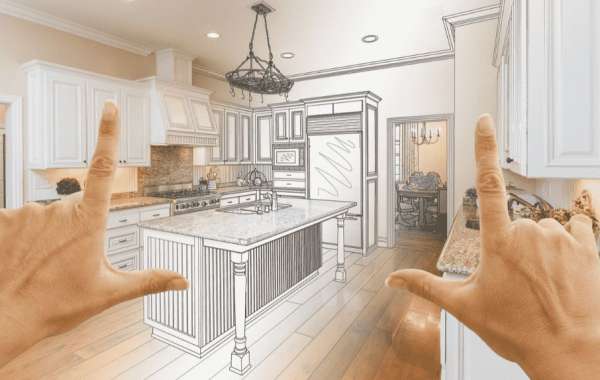In the world of construction, managing costs effectively is crucial for the success of any project. With the right strategies, you can ensure that your project is completed on time and within budget, without compromising on quality. As experts in civil contractor services in India, we provide comprehensive insights and practical tips to help you achieve cost-effective construction.
1. Planning and Design: The Foundation of Cost Efficiency
Effective planning and design are the cornerstones of a cost-effective construction project. Begin by clearly defining the scope and objectives of your project. Engage with experienced architects and engineers to create detailed plans and blueprints. This initial investment in planning can save substantial costs in the long run by avoiding design changes and unforeseen issues during construction.
Thorough Site Analysis
Conduct a thorough site analysis to understand the specific conditions and requirements of your project location. This includes soil testing, topographical surveys, and environmental assessments. By identifying potential challenges early, you can plan for necessary adjustments, preventing costly delays and modifications later on.
Value Engineering
Implementing value engineering techniques can significantly reduce costs while maintaining quality. This involves evaluating different construction methods, materials, and designs to find the most cost-effective solutions. Collaborate with your contractor to identify areas where savings can be achieved without compromising the integrity of the project.
2. Budgeting and Financial Management
A well-planned budget is essential for controlling costs. Establish a realistic budget that includes all aspects of the project, from design and materials to labour and contingency funds. Regularly monitor expenses and adjust the budget as needed to stay on track.
Detailed Cost Estimation
Prepare a detailed cost estimation that outlines all expected expenses. This should cover materials, labor, equipment, permits, and any additional costs. Ensure that your estimates are as accurate as possible to avoid unexpected financial burdens during construction.
Contingency Planning
Include a contingency fund in your budget to account for unforeseen expenses. It is recommended to set aside 10-15% of the total budget for contingencies. This safety net allows you to handle unexpected issues without derailing the entire project.
3. Choosing the Right Contractor
Selecting a reputable and experienced contractor is critical to the success of your project. Look for contractors with a proven track record in civil contractor services in India and ensure they have the necessary licenses and insurance.
Comparative Bidding
Invite multiple contractors to submit bids for your project. Compare their proposals not only based on cost but also on their experience, quality of work, and timelines. Avoid the temptation to select the lowest bid without considering these factors, as it may lead to higher costs in the long run due to poor workmanship or delays.
Clear Contracts
Ensure that all terms and conditions are clearly outlined in the contract. This includes the scope of work, payment schedule, timelines, and any warranties. A well-defined contract helps prevent misunderstandings and disputes, which can lead to additional costs.
4. Efficient Project Management
Effective project management is essential for keeping your construction project on time and within budget. Employ experienced project managers who can oversee all aspects of the construction process, from scheduling to resource allocation.
Regular Progress Monitoring
Conduct regular progress monitoring to ensure that the project is on track. Schedule weekly meetings with your contractor and project team to review progress, address any issues, and make necessary adjustments. This proactive approach helps prevent delays and keeps the project moving forward smoothly.
Resource Optimization
Optimize the use of resources to minimize waste and reduce costs. This includes efficient use of materials, labour, and equipment. Implementing just-in-time delivery of materials can prevent excess inventory and reduce storage costs.
5. Sustainable Building Practices
Incorporating sustainable building practices not only benefits the environment but can also lead to significant cost savings. Consider using energy-efficient materials and construction methods that reduce long-term operational costs.
Energy-Efficient Materials
Choose energy-efficient materials such as insulated concrete forms, low-E windows, and high-efficiency HVAC systems. These materials may have a higher upfront cost but can result in substantial savings on energy bills over the life of the building.
Waste Management
Implement a comprehensive waste management plan to reduce construction waste. Recycling and reusing materials can lower disposal costs and contribute to environmental sustainability.
6. Leveraging Technology
Advancements in construction technology can enhance efficiency and reduce costs. Embrace innovative tools and techniques to streamline the construction process.
Building Information Modeling (BIM)
Utilize Building Information Modeling (BIM) to create detailed 3D models of your project. BIM allows for better visualization, coordination, and planning, reducing the likelihood of errors and rework.
Construction Management Software
Implement construction management software to track project progress, manage schedules, and communicate with the project team. These tools provide real-time insights and facilitate efficient decision-making.
7. Post-Construction Cost Control
Cost control doesn't end with the completion of construction. Implementing effective post-construction strategies can help manage expenses and ensure long-term savings.
Regular Maintenance
Establish a regular maintenance schedule to keep the building in optimal condition. Preventive maintenance can extend the lifespan of building components and reduce the need for costly repairs.
Energy Management
Monitor and manage energy consumption to keep operational costs low. Implement energy-saving practices such as regular HVAC maintenance, proper insulation, and the use of energy-efficient lighting.
In conclusion, achieving cost-effective construction requires meticulous planning, efficient resource management, and the use of advanced technologies. By following these practical tips, you can ensure that your project is completed on time, within budget, and to the highest standards of quality.




